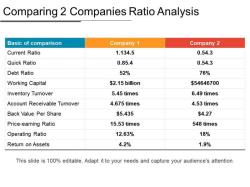How does annuity payout work for lottery?
Annuity payouts are one option for receiving lottery winnings. When you win a lottery and choose the annuity option, you receive your winnings in a series of periodic payments over a set number of years, rather than in a single lump sum. Here's how annuity payouts in lottery winnings typically work:
Winning the Lottery: When you win a lottery jackpot and choose the annuity option, you will not receive the entire jackpot amount upfront. Instead, the total jackpot amount is divided into equal payments, usually over 20 to 30 years, depending on the terms of the lottery.
Fixed or Increasing Payments: Annuity payments can be structured in different ways. Some lotteries offer fixed annuities, where each payment is of the same amount. Others may offer increasing annuities, where payments start smaller and gradually increase over time to account for inflation.
Guaranteed Payouts: Annuity payouts are typically guaranteed by the state or organization that operates the lottery. This means that you are assured to receive your scheduled payments as long as the lottery entity remains solvent.
Taxes: Lottery winnings, whether received as a lump sum or as annuity payments, are subject to taxes. You will need to pay federal and state income taxes on each annuity payment you receive. It's important to consult with a tax professional to understand the tax implications of your winnings.
Transferability and Inheritance: In some cases, annuity payments may be transferable or inheritable. This means you can assign or leave the remaining annuity payments to someone else, such as a spouse or beneficiary, in the event of your death. Rules regarding transferability and inheritance vary by state and lottery.
Investment Potential: Some individuals choose the annuity option because it provides a structured stream of income that can be managed over time. This can help protect against overspending or mismanagement of a large lump sum. Additionally, some winners may choose to invest their annuity payments to potentially generate additional income.
Cash Value Option: In contrast to the annuity option, lottery winners can choose to receive a single lump-sum payment, which is typically less than the total jackpot amount. This lump sum is known as the "cash value" option. The advantage of the cash value option is that you receive your winnings immediately and can invest or use the money as you see fit.
The decision between taking the annuity or the lump sum depends on your financial goals, needs, and risk tolerance. Some individuals prefer the security and discipline of annuity payments, while others prefer the immediate access and control of a lump-sum payment. It's important to carefully consider your financial situation and consult with financial advisors or legal experts before making a choice, as the decision can have significant financial implications.
Demystifying Annuity Payouts in Lottery Winnings
When you win the lottery, you have the option to receive your prize in a lump sum or in the form of an annuity. An annuity is a series of payments made over time, typically over a period of 20 to 30 years.
Annuities can be a good option for lottery winners who want to ensure that they have a steady stream of income for many years to come. However, it is important to understand how annuity payouts work before you make a decision.
The Mechanics of Lottery Annuity Payments: How They Work
The amount of your annuity payments will depend on the size of your lottery prize, the length of the annuity term, and the interest rate. The interest rate is the percentage of your prize that you will earn each year.
Annuities are typically structured so that the first payment is the largest, and the payments gradually decrease over time. This is because the insurance company that pays out your annuity is investing your prize money, and they are earning interest on that investment.
The interest rate that you earn on your annuity will depend on the current market interest rates. It is important to note that interest rates can fluctuate over time, so your annuity payments may also change.
Annuity or Lump Sum: Understanding Your Options with Lottery Prizes
The decision of whether to take a lump sum or an annuity is a personal one. There are advantages and disadvantages to both options.
Advantages of an annuity:
- Guaranteed income stream: An annuity provides you with a guaranteed stream of income for a set period of time. This can be helpful for lottery winners who want to ensure that they have a steady income to rely on.
- Tax benefits: Annuity payments may be taxed at a lower rate than a lump sum payout.
- Asset protection: Annuities can protect your assets from creditors and lawsuits.
Disadvantages of an annuity:
- Lower overall payout: Annuity payments are typically lower than the lump sum value of your prize. This is because the insurance company is investing your prize money and earning interest on that investment.
- Lack of control: Once you purchase an annuity, you may have limited control over how your money is invested.
- Premature death: If you die before the end of the annuity term, your remaining payments may go to your heirs, but they may not receive the full amount of your prize.
Lump sum:
Advantages of a lump sum:
- Higher overall payout: A lump sum payout is typically higher than the annuity value of your prize. This is because you are receiving the full amount of your prize immediately, without having to wait for annuity payments.
- Greater control: With a lump sum payout, you have complete control over how your money is invested.
- Flexibility: You can use a lump sum payout to pay off debts, invest in your future, or simply enjoy yourself.
Disadvantages of a lump sum:
- No guaranteed income stream: A lump sum payout does not provide you with a guaranteed stream of income. If you spend your prize money all at once, you may run out of money before the end of your life.
- Higher taxes: A lump sum payout may be taxed at a higher rate than annuity payments.
- Risk of mismanagement: If you are not careful with your money, you could lose it all.
Which option is right for you?
The decision of whether to take a lump sum or an annuity is a personal one. There is no right or wrong answer. The best option for you will depend on your individual circumstances and financial goals.
If you are unsure which option is right for you, it is important to talk to a financial advisor. A financial advisor can help you understand the pros and cons of each option and can help you make the best decision for your individual needs.













